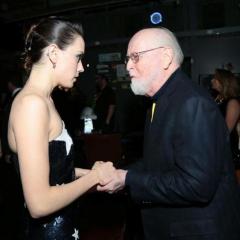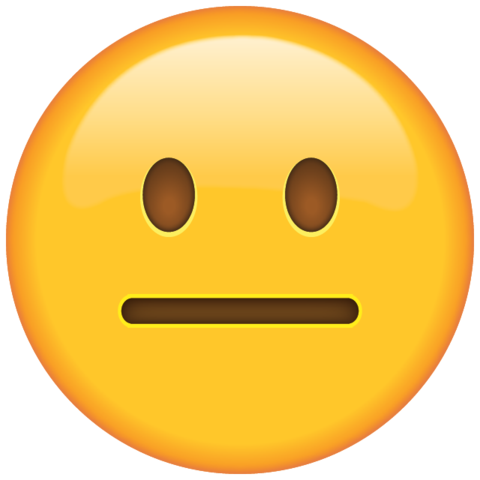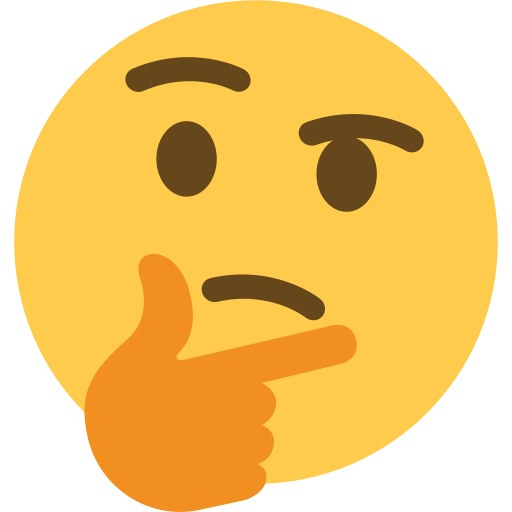-
Posts
964 -
Joined
-
Last visited
-
Days Won
1
Everything posted by Score
-

Variety's ranking of the 100 greatest movies of all time
Score replied to Edmilson's topic in General Discussion
No, I haven't. I've discovered Lynch very recently with Mulholland Drive, and I'm currently going through Twin Peaks. Lost Highway will join my to-watch-soon list together with Blue Velvet, thanks for the suggestion. -

Variety's ranking of the 100 greatest movies of all time
Score replied to Edmilson's topic in General Discussion
I will never understand why the Godfather movies (both part 1 and part 2) are so much revered. They are surely good movies, but I don't see what makes them so exceptionally great that they always end up on everybody's short list of the best movies ever. Same for Citizen Kane. Now, Mulholland Drive should definitely be on any list of best movies. Truly a masterpiece in every sector, and one of the most original movies I've ever seen. I haven't seen Blue Velvet, though - a hole that I will try to fill as soon as possible. -
Notably, Christopher Palmer composed the memorable saxophone main theme for Taxi Driver ("So Close To Me Blues"), based on a theme by Herrmann. It's probably the most famous cue in that score.
-

John Williams conducts Filarmonica della Scala, Milan, Italy, 12 December 2022!
Score replied to Jay's topic in JOHN WILLIAMS
This John Williams guy should stop believing everything he reads on Twitter! -

Does classical composer John Adams hate John Williams?
Score replied to Aliandra's topic in General Discussion
Click-baiting title? -
As far as I'm concerned, Nyman's film music masterworks are the scores for The Piano and Gattaca. I think The Piano is one of the great scores of the 1990s, and its OST features, among many beautiful pieces, one of the best album openers ever ("To the Edge of the Earth"). His overall production is a mixed bag for me. Among the pieces that I love, I should surely mention The Piano Concerto and the 5-movement orchestral piece "Strong on Oaks, Strong on the Causes of Oaks". "Musique à Grande Vitesse", Concerto for Harpsichord and Strings, and the Saxophone Concerto are also quite interesting.
-

John Williams conducts Filarmonica della Scala, Milan, Italy, 12 December 2022!
Score replied to Jay's topic in JOHN WILLIAMS
I want to thank all those who have shared their experiences and videos of the concert. Although I could not attend, I feel a bit as if I was there as well. I truly hope that someone recorded the Schindler's List theme, since by all accounts (here and elsewhere) it was an incredibly moving performance. Also, I'm very pleased to notice that all the reviews that I've seen on Italian newspapers, so far, are overwhelmingly positive. It's impressive that John, at his age, has managed to complete the tour of the European theaters which best epitomize the remote roots of his art. -

DID JOHN WILLIAMS COMPOSE THE IJ DIAL OF DESTINY TRAILER MUSIC?
Score replied to Amvanquish's topic in JOHN WILLIAMS
That AI's behaviour would definitely pass the Turing test! -

DID JOHN WILLIAMS COMPOSE THE IJ DIAL OF DESTINY TRAILER MUSIC?
Score replied to Amvanquish's topic in JOHN WILLIAMS
This sentence definitely gives me "Hitchhiker's Guide to the Galaxy" vibes! -

DID JOHN WILLIAMS COMPOSE THE IJ DIAL OF DESTINY TRAILER MUSIC?
Score replied to Amvanquish's topic in JOHN WILLIAMS
... "and I said to Steven: I really think you need a better composer than I am for this trailer. And he very sweetly said: I know..." -

DID JOHN WILLIAMS COMPOSE THE IJ DIAL OF DESTINY TRAILER MUSIC?
Score replied to Amvanquish's topic in JOHN WILLIAMS
No, it isn't pointless. If I google "dial of destiny trailer music composer", this jwfan thread is the first suggestion that appears. Not a bad achievement, for something that is totally unrelated to JW! Keep it going! -
The Italian translation on wikipedia is "La ruota del destino", which means "The wheel of destiny". I don't know if it will be the official Italian title, though. Maybe they mean some object similar to an old rotary dial, like this: https://en.wikipedia.org/wiki/Rotary_dial (the younglings on the forum might not have ever seen that )
-

DID JOHN WILLIAMS COMPOSE THE IJ DIAL OF DESTINY TRAILER MUSIC?
Score replied to Amvanquish's topic in JOHN WILLIAMS
Not only JW did not compose it, I hope he will not ever hear it! -
When you see the prices at Music Box Records it's always a bit tough, but I went for that option anyway. At least I know in advance what I'm going to pay (too often in the past my smile at the arrival of the LLL order was killed by the communication of the custom fees over the intercom), and when they ship the order, I know it will take just a few days to reach me, without being stuck in some unknown place for weeks in "customs clearance" status.
-
Franco Sciannameo wrote the book "Nino Rota's The Godfather Trilogy - A Film Score Guide". For his researches, he had the permission to see Nino Rota's manuscript scores for all the Godfather movies from two different archives, and at the end of the book he lists all the cues that he has found (including slate numbers), specifying those which were recorded but not used in the films. I think it's quite a comprehensive list, possibly complete (there, one can find all the track titles of the LaLaLand release of the first score). The answer to your question is: yes, there is some recorded but unused stuff also for the second score.
-
He obviously meant to write "Sith".
-
The answer to this is in the rest of my post that you have partially quoted. I have already explained several times what I mean. If you object to the word "filler" (that I was borrowing from previous posts), replace it with one of your choice that is able to capture the difference between a well-thought and well-constructed piece of music such as the Prologue (for example) and a sequence of static elementary chords. Because, believe me, there is a difference, and I'm sure that Shore himself would agree.
-
That's not what I meant. Maybe, instead of "musical value" (which is somehow subjective) I should have used the term "compositional value". Or "compositional originality", if you prefer. For example, the Prologue of LOTR (in both the film and the original version, though I prefer the latter) is compositionally interesting, as well as very fitting for the film context. An example of what I call "filler material" is the section from 1:43 to 2:40 of track 4 "Very Old Friends" from the LOTR complete recordings. I hope I have made clear enough, above, that I don't deny the possible role of simple music as effective score (I said it two or three times), I'm just talking about the compositional values of the piece of music taken in itself. The Prologue of LOTR requires a very good and skilled composer, that section from track 4 can be written by anyone with basic musical training. The LOTR scores display a singular alternation of both types of musical cues.
-
I'm not talking only about harmony. I'm talking about all the aspects of the musical piece. Wagner has nothing to do with this, the Tetralogy is everywhere much more elaborated (including the passage that you have linked). It's not about the use of leitmotives, it's about the compositional techniques: what is the musical idea, and how it is realized, in all its aspects. In this respect, there is an ocean between the Tetralogy and the LOTR scores. I cannot think of a single moment in the Tetralogy where I thought "ok, here he had a couple of minutes to fill and he wrote some strings chords". I'm not forgetting them. Emotionally speaking, a series of sustained elementary strings chords (taken alone) does not give me anything. Anyone can write those; the instruments can speak much more eloquently than that. Praising the textural aspects is like saying that a string ensemble sounds very nicely, whatever they play. Ok, I know strings and choir sound nicely, there is a reason if composers use them, but this has nothing to do with the value of a specific musical piece; it's a property of the instruments, not of the composition. I stress again that I'm not talking about the LOTR scores in their entirety, just about the filler parts, which occur often enough to be noticed. And again, I'm not implying that those parts were "wrong" in the context they were written for. For those moments, the movies did not need anything more. But the parts of the LOTR scores that I admire are among the "non-filler" ones. In the case of ROP, surely I was not overwhelmed by the show. However, in the scores I noticed no filler moments, and this is one of the many reasons why I like them. Almost everywhere the scores are interesting and evocative. I feel a bit like in the case of the SW prequels; at the end I found myself saying "ok, they are what they are, but at least we got some very good music". In the ROP case, IMO we also saw some good acting and other values (such as the visuals); I also think some of the storylines were intriguing, although not realized in the best possible way.
-
Exactly this. I mean, there are things in music that can be defined in an objective way. A sequence of very simple long held chords in the strings, with the simplest possible voicing, and literally nothing happening on the top of it, is (a form of) filler. It may work and be appropriate in the film (especially if the film is very good in itself, and does not need to be accompanied by a Mahler symphony to transmit emotions and messages), but it has no musical value when taken alone as a part of a piece of music. The LOTR scores contain a fair amount of filler material, in various forms. This does not take anything away from the very notable highlights, but it's not like every single bar of those scores is gold.
-

Rings of Power The Rings Of Power APPRECIATION thread
Score replied to Jay's topic in Tolkien Central
Was the character in the show specifically named Olorin? If so, I must have missed it, and I take my hypothesis back. In any case, it's just my guess, I have no inside info on Amazon's writing processes! For sure, such a solution would significantly infuriate the die-hard Tolkien fans, so (based on the previous events) I consider it as a likely possibility -

Rings of Power The Rings Of Power APPRECIATION thread
Score replied to Jay's topic in Tolkien Central
Also notice that the Mystic says "he's the other one, the Istar", not "one of the Istars". It could mean that the Istar is originally a single entity. -

Rings of Power The Rings Of Power APPRECIATION thread
Score replied to Jay's topic in Tolkien Central
I think the character has some aspects of all the Istars (not just Gandalf; there are also bits of Saruman and Radagast in his behavior and characteristics), so he could even be a sort of composite character that will magically separate himself into the five guys. I would not be surprised should they go down that way.







